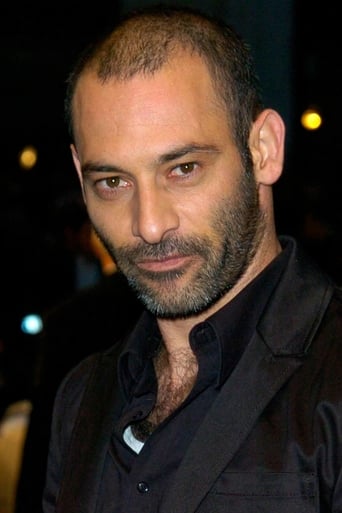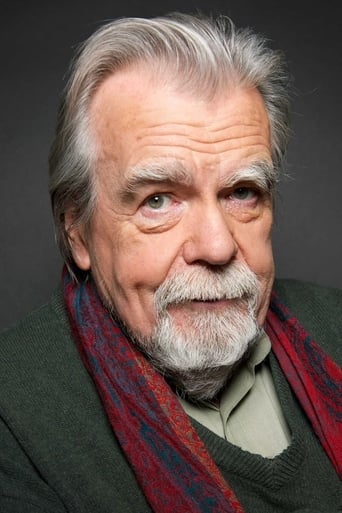SnoReptilePlenty
Memorable, crazy movie
Dorathen
Better Late Then Never
Fairaher
The film makes a home in your brain and the only cure is to see it again.
SanEat
A film with more than the usual spoiler issues. Talking about it in any detail feels akin to handing you a gift-wrapped present and saying, "I hope you like it -- It's a thriller about a diabolical secret experiment."
gaitsine-610-696847
Stretched in Time, boring, a bit pathetic;
The good side is that it gives okay picture of religious conflicts in Roman Egypt.
begob
An ancient philosopher resists the rise of religious mania, but her followers give in to temptation as the forces of evil close in.One of the great episodes in all history, when power, faith and reason came together in an explosion of cruelty and hatred. As another reviewer put it, the moment the dark ages began. This production doesn't quite do the story justice, but it does mix the elements with style and passion and sketches out the historical record in good faith. I did wonder how brutal the ending would be, and the director chose to ease the passing - was that wise?The locations and sets are fascinating, giving a feel for the legendary city while preserving the sense of decay and ruin, and the themes are presented with as much visual flair as possible. There are several set pieces that drive home the depravity of urban rioting, but before that kicks off there's a stodgy opening act, which left me restless and unengaged. Some have criticised the script, but I can't see any obvious way to have improved on it. Maybe a big production like this needs a bit of luck to succeed, or ... divine intervention.The performances are solid, the most vivid coming in the part of Cyril, the vengeful bishop. The photography and music have great sweep, and the editing keeps the pace clipping along - although the first half hour lacks something. There's a fair amount of geometric symbolism, and I'm sure I missed most of its significance, so this should be worth re-watching.Overall: Impressive drama that just fails to hit the spot.
Badar Munir
A story of fight between Thinking (Philosophy and Mathematics) vs Religion (Christianity) where holy men interprets the Word of GOD for his own gains. It revolves around a young beautiful Greek Philosopher and Mathematician (Hypatia played by Rachel Weisz) and his three students, who also are in deep love with her, in an era of high tensions between Jews, Christians and Pagans.Its 391 – 400 AD. Hypatia is the head of the Platonist school at Alexandria where she is teaching philosophy and Mathematics. Three of her students, Davus (Max Minghella), Orestes (Oscar Isaac) , Synesius (Rupert Evans) have special feelings towards teacher. Orestes has admitted his feelings publicly which was brutally rejected by her. She don't have any such feelings towards anyone of the three. Her only passion and love is Philosophy.With rise of Christianity in Alexandria, everything changes. Pagans being in power tries to power the Christians down, but was outnumbered. In result of this, the raged Christian mob burns down the great library of Alexandria and years of work with it. Hypatia has to run to save her life along with other pagans. Rage of Christians is not limited only to pagans but also towards Jews.Orestes is Prefect of Alexandria, Synesius is Bishop of Cyrene and Davus is a confused Christian. All three have accepted the Christianity in their own way and are still in love. Orestes still loves her and trusts her with all his matters. Cyril is the new head priest and under him Christians are taking liberties day after day for his own interpretations of word of GOD. With Cyril the new head priest, he has his eyes set on power as Prefect of Alexandria.One day, Cyril, while reading from the holy book accused Hypatia of ungodliness and calls her a witch and asks all present to kneel before God to reconcile themselves with Christ make all nonbelievers embrace it too. This puts all three in awkward position. All men present there kneels but one, Orestes. This outraged the Mob and they throw stones over him. Group of Davus plans to abduct her and teach her a lesson.Orestes and Synesius discusses this with Hypatia and tries to make her compromise who dismisses this and leaves the government protections. Davus tries to find her but his group finds her first. Group ridicules her, strips her naked and decides to skin her alive. Davus intervenes and convinces them not to color their hand in her impure blood and suggests to stone her. While the group finds the stones, he suffocates her with his bare hands.The movie shows us in a brutal way that blood was shed in the NAME OF GOD then as it is now. Nothing has been changed. Few radical people interprets the Holy word of God as they want and lure common innocent people into the web of cunning and lies and uses them to their own gains. The plot has uncanny resemblance to the current state of radical Islam and other sectarian conflicts going on these days in middle east. But it avoids to dwell into other romantic subplots and keeps its focus on the fight between science and religion, men over women.It also shows a true love of a genius women for truth. This in itself is hard to digest by the big egoistic holy people. Wrongly interpreted lies, by these SO CALLED HOLY People, feel threatened and in return they do all in their power to save them. They even stop people from questioning and imposes their OWN thoughts by presenting them as word of God. It was clearly evident in the conversation between Hypatia and Synesius where she tell him that "You don't' question what you believe, You cannot. I must". In reply Synesious tells her that its a Pity. This sums up the whole movie.Rachel Weiz was great in role of Hypatia so as Max Minghella and Oscar Isaac. Sets are amazing and take you back to the ancient Greek world. All in all a great movie. A real treat to watch for all those who like to think with open mind.
SnoopyStyle
It's 4th century AD Alexandria. It is still a Roman city but Christians are a new force to deal with. The empire is crumbling. Hypatia (Rachel Weisz) is a modern woman scientist and teacher with modern views of astronomy. Her student Orestes (Oscar Isaac) and her slave Davus (Max Minghella) are both in awe of her. Christians are hated and put down by most Romans. Hypatia tries to be treat everyone equally. The Christian agitator Ammonius converts Davus. Orestes tries to win Hypatia over but she rejects him. The Romans rally to kill the Christians for an insult to the gods, but it turns into an all out fight. The Romans retreat to the library. First there is an uneasy truce. The library is sacked. Peace generally returns but Christians continue to agitate. Learning is lost. Fanatism and zealotry descend on the community. Religious intolerance reign. Hypatia tries to advance learning but her place in the world becomes more and more precarious.Spanish director Alejandro Amenábar is taking on a lesser known historical drama. For the most religious viewers, this will seem like a diatribe against Christianity. There is certainly a distaste for religious rigidity. This is more of a history lesson. The science is interesting but probably not compelling for the general public. What this movie needs more than anything is humanity. The movie basically displaces human love with love of science. Rachel Weisz is playing this character so coldly. And I don't like the pulling back of the camera to a global view. It distances the audience from the characters. It does get heavy handed. The story works just enough and unique enough to be worthwhile viewing.






